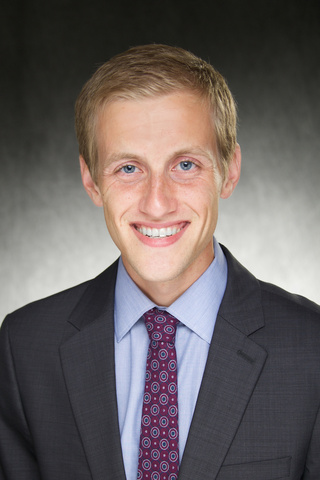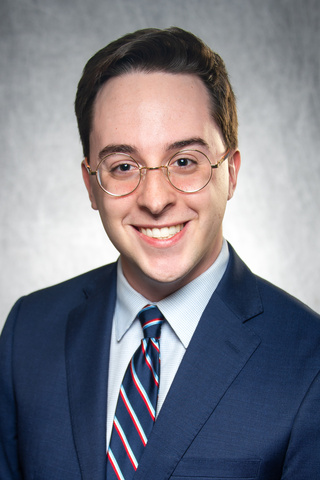The Health Care Delivery Science, Management, and Policy Distinction Track is equipping medical students with the tools to navigate diverse health care systems.
A select group of UI Carver College of Medicine students aren’t just learning the clinical skills they’ll need to be physicians; they’re learning the business and management skills they’ll need to have a seat at the table.
The Health Care Delivery Science, Management, and Policy (HDSMP) distinction track exposes medical students to the innovations and integrations of health care systems that impact medical care. By gaining a health-focused introduction to business and leadership, students who graduate with this distinction are given the tools to help them succeed in the diverse environments in which they will practice medicine.
The business of medicine
To complete the track, students must complete a series of seminars and a capstone project. The seminars cover rotating topics like entrepreneurship and innovation, analytics and biomedical informatics, negotiations, and strategic talent management. This portion of the curriculum also includes a two-week leadership class in which students get the opportunity to meet with leaders from health care and beyond—past guests have included University of Iowa President Barbara J. Wilson and Iowa congress members Joe Bolkcom and Zach Wahls—about personal leadership development. When it's time to focus on their capstone projects, students determine the topic and scope for themselves.
Charles Paul (17MD), who was among the cohort of students who launched the program in 2016, says a basic business education is valuable no matter what career path medical graduates choose to pursue.

“A lot of things in medical education are streamlined, and there are a lot of requirements. Being able to tailor the curriculum to your interests is huge,” Paul says. “People work harder and are more engaged with topics that they're truly interested in.”
Students in the HDSMP track coordinate with a physician mentor to select and complete their capstone projects. Commonly, the projects focus on a specific, achievable quality improvement within UI Health Care. Students can also choose to complete a month-long policy elective in Des Moines, where they learn about health care legislation and advocacy.
Paul fulfilled his capstone requirement by creating the lasting structure of the HDSMP track along with four other student founders.
“The goal of medical school is learning how to be a good doctor and make appropriate clinical decisions, but that is just one of many parts of the job,” Paul says. “There are a lot of components of the health care world that there wasn’t necessarily a formal education for.”
So far, 63 students have graduated with HDSMP distinction. Paul is proud that the student group was able to build a self-sustaining program that continued after they graduated.
Originally from Le Claire, Iowa, he earned a double-major in kinesiology and finance at Iowa State University before coming to the UI Carver College of Medicine for his medical degree. He is now in the final year of urology residency training at Iowa—during which he also earned a Master of Business Administration from the Tippie College of Business—and he will soon be joining a private urology practice in Ames.
“Having the vocabulary and basic knowledge that comes with a business education is going to open doors for me that might not otherwise be there, but we don’t expect everyone to go on to get an MBA,” Paul says. “The goal is to prepare students to be leaders in their future practices.”
Student Founders
- David DeMik (17MD)
- Michael McHugh (17MD)
- Joseph Nellis (18MD)
- Charles Paul (17MD)
- Sebastian Sciegienka (18MD)
Program Co-Directors: Alan Reed, MD, MBA and Hugh Hansen, MS
Right on track
Medical student Brandon Bacalzo of Two Rivers, Wisconsin, joined the track after learning about it during the student activities fair in his first year. He says that his career plan is to start a private practice as an outpatient psychiatrist, which will require him to think like a business owner as well as a physician.
“The track promises to provide an introductory sense of how to run a practice as a business and how to think of the way we're delivering health care so that we can improve it over time,” Bacalzo says. “It has allowed me to enhance what I'll learn in medical school and residency, and I'm going to integrate that into my future practice.”

Bacalzo’s capstone project, mentored by Sam Shultz, MD, is a quality improvement initiative related to how patient restrictions and activity levels are represented in Epic for UI Hospitals & Clinics inpatient psychiatry units.
“The activity levels were labeled ‘activity level one,’ or ‘activity level two.’ In my conversation with a resident in the department, I got the sense that the residents placing these orders didn't always know exactly what that meant,” he explains. “Our intervention is to provide in Epic, when physicians are placing admissions orders, a link to access the definitions for the orders they're placing.”
The change went live in Epic in February and is now an active part of the admissions process.
“I learned quite a bit from being able to interact with people that I don't think I would've normally come into contact with, particularly nurses and information technology folks,” says Bacalzo, who now serves as executive student leader of the track.
The real-world impact of HDSMP distinction track students’ work sets the program apart from typical medical school coursework. Students get the opportunity to contribute something that helps patients and improves care before they even graduate with their MD, while also benefiting from a deeper level of exposure to hospital administration.
“I think it's always important for physicians to understand the vocabulary that's being used so that we can ultimately inform decision makers and not be intimidated," Bacalzo says. “When physicians have the confidence and connections to have their voices be heard as a stakeholder, all boats rise, and clinical care is positively impacted.”
Health Care Delivery Science, Management, and Policy Distinction Track
Partnering with faculty from the Tippie College of Business and the College of Public Health, the HDSMP track enriches the Carver College of Medicine’s core curriculum by offering students a program geared toward producing physician leaders of tomorrow. Learn more about the benefits and requirements of graduating with this distinction.